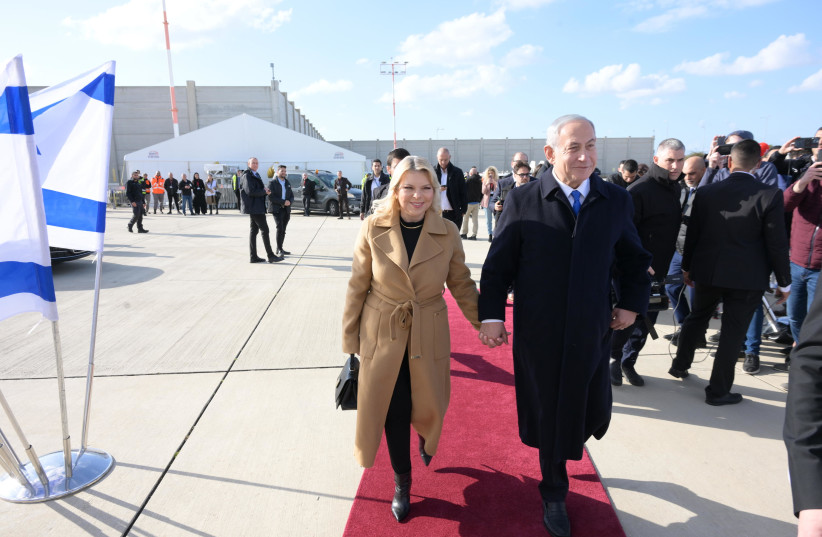Prime Minister Benjamin Netanyahu pushed to build a common front with France against Tehran on Thursday after the Islamic Republic accused Israel of blowing up a munitions dump in the Iranian city of Isfahan.
He met with President Emmanuel Macron almost immediately after landing, in his first foreign trip since he returned to power at the end of December.
Prior to departure, he said “the main topic of our talk will be Iran, of course, and the joint efforts to fight its aggression and its aspiration to obtain nuclear weapons.”
Joint efforts with the US
His trip follows a visit to Israel by US Secretary of State Antony Blinken this week, which also focused on strengthening joint efforts by both governments to prevent Iran from becoming a nuclear power and halting its regional and global aggression.
US State Department deputy spokesman Vedant Patel touted those ties in Washington on Wednesday.

“Israel is an important regional partner and ally in the fight against Iran’s activities in the region,” Patel said, explaining that this included efforts to combat “some of Iran’s destabilizing and malign activities, including work to ensure that Iran never obtains a nuclear weapon.”
Netanyahu sees an opportunity to strengthen relations with both countries in this sphere, in part because the discord between him and his Western allies over the 2015 Iran deal is no longer relevant, given the failure to revive it.
That failure opens up the possibility of new strategies. Iran’s execution of protesters and its military support of Russia has also hardened international opinion against the Islamic Republic.
Netanyahu has focused in particular on swaying Europe to designate the Islamic Revolutionary Guard Corps as a terror entity.
Iranian antagonism
The premier, who has long been Iran’s arch-foe in the West, drew increased antagonism from Tehran, which believes he is behind the Isfahan attack. Netanyahu and Israeli officials have refused to comment on the matter.
But in a letter to UN Secretary-General Antonio Guterres, Iran Ambassador Amir Saeid Iravani said the “primary investigation suggested Israel was responsible” for Saturday night’s attack.
“Iran reserves its legitimate and inherent right to defend its national security and firmly respond to any threat or wrongdoing of the Zionist regime [Israel] wherever and whenever it deems necessary,” he wrote.
“This action undertaken by the Zionist regime goes against international law,” he said.
Moscow also issued a veiled threat against those who were behind the attack, as it also appeared to indicate that the Jewish state was involved. It also issued a more direct threat after Netanyahu told CNN that he was considering sending defensive weapons to Ukraine, a move he has hesitated to do in the past for fear of antagonizing Russia.
He also acknowledged that Israel has attacked targets involved in weapons production of the kind that Tehran could send to Russia for use against Ukraine.
Russia issued a more blatant statement on Wednesday after Foreign Ministry spokeswoman Maria Zakharova said that all countries that supply weapons should understand that her country considered those arms to be legitimate targets and that such action would lead to an “escalation of the crisis.”
Israel has been under pressure from the US and the West to do more to stand with Ukraine. But even as its latest steps are likely to help Netanyahu’s reception in France, the two leaders are expected to be at odds over the Israeli-Palestinian conflict, particularly given the premier’s pledge to expand West Bank settlements.
Netanyahu also plans to use the trip to push back at domestic charges that his plan for a judicial overhaul could harm the country’s economy.
Aside from meeting members of the French Jewish community, he will also meet with French entrepreneurs.
Reuters contributed to this report.
